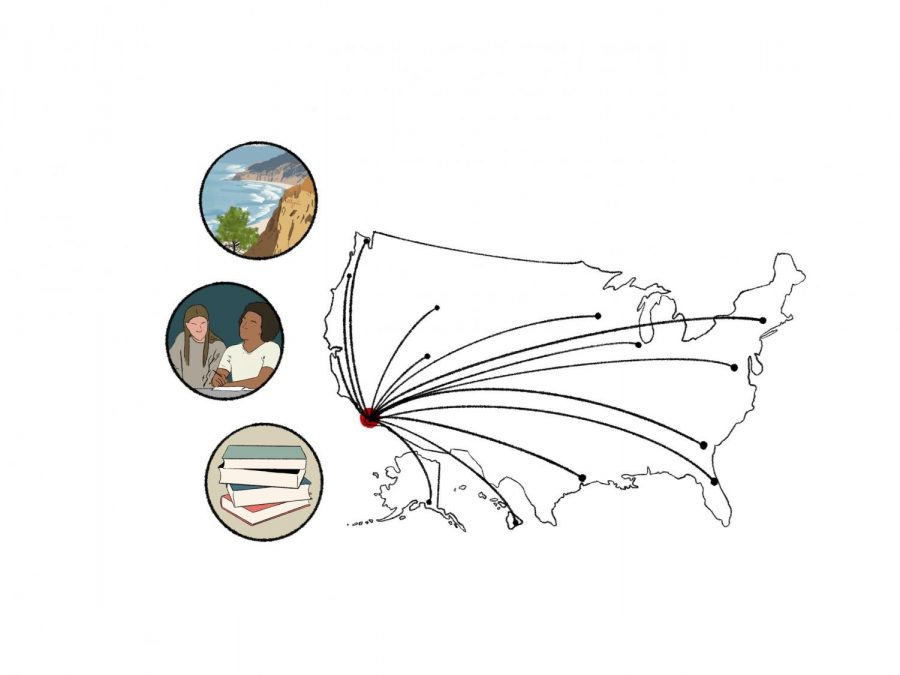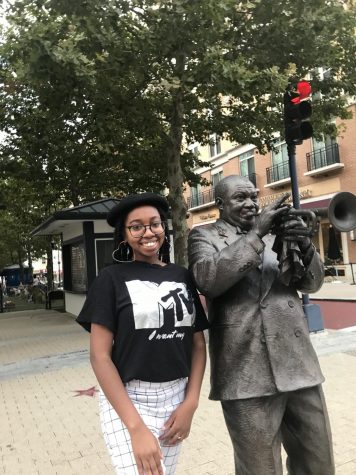College brings about so many things in students’ lives— adventures, opportunities, educational experiences, and inevitably culture shock.
All students come into contact with culture shock at some point during their college career, but most often, at the beginning.
At first, you may find your new surroundings vibrant, exciting and intriguing. You will meet all types of people, make new friends, find your way around campus and possibly, a new city.
Ultimately, you may feel confident about your decision to attend college and embark on this new chapter in your life. However, when you find yourself just starting to settle down into your routine and find yourself becoming extremely comfortable with where you are at, culture shock can hit, and it can hit hard.
For many students, college is a foreign culture, and often, they do not equate entering college to entering a different culture. Culture is often referred to as the things that we do and accept without really thinking about them.
We have expectations, values, ways of talking, eating, behaving, relating to each other and even certain perspectives that make us who we are and different from others. Even still, we don’t give these things any conscious thought most of the time. You may need to adapt to the different notions that you are used to and that adjustment will be made gradually.
Adjusting to college life is often harder than most students and their parents anticipate. Things like having a roommate for the first time, using communal bathrooms and eating food in a dining hall are all new to students coming to campus for the first time.
Students know that life at college is going to be different, and they are excited, and possibly a bit anxious, about starting their adventure. However, it is difficult to anticipate how different life may be when you don’t exactly know what to expect.
As long as it may take, most students will eventually adjust to college life.
However, it is important to keep in mind that each student adjusts according to a different timetable. Some students may find that the adjustment comes fairly easily and hardly realize that it is happening. Other students sometimes find the process difficult, slow, and even painful.
Despite the time differences in adjusting, the stages of cultural adjustment are similar for mostly everyone.
Coming to a new city, with new people, and new social rules can be scary. It will take time to adjust and become assimilated in your new environment.
Moving to San Diego from Washington, D.C. was not only the biggest decision I’ve probably ever made but it was the best one. People thought I was bold for wanting to move to California and dive right into a brand new culture and world, but I had an open mind about what I was going to face.
I am no stranger to culture shock and even as a junior, I still experience it from time to time.
Things as simple as the time difference, palm trees up and down every block or the year-round 70 degree weather were something I had to adapt to, and it took time.
Things were complex too. The lack of guidance when it came to the way I spent my time or money were also pieces of culture shock I experienced more often than not.
Staying involved on campus and being connected to others helped me cope quite a bit when I initially came into contact with culture shock.
Although I still experience culture shock sometimes, I have learned to embrace culture shock when it occurs because I have the privilege of learning something about another culture I didn’t know before. In this way, I am able to gain a new perspective, a new friend and a new lesson that I am able to apply to my own repertoire.
There is no avoiding culture shock in college.
We all experience some form of it. You are not alone and you may find many of your peers are dealing with it. The best thing you can do is try to take it in strides, get involved on campus, stay connected with others and accept that this is your brand new life.
If you feel that your problems may run deeper than just culture shock, do not hesitate to reach out to someone. Your family, your RA, and Counseling and Psychological Services are there to help you navigate through the challenges you are facing.
Ultimately, culture shock can be a good thing. It enhances your knowledge, expands your horizons and exposes you to something new. It makes you a well-rounded person which you can use at your advantage in a number of situations.
Find the light in culture shock and instead of looking at it as an adverse scenario, use it to learn more about the world, about yourself and make the best of it.
Trinity Bland is a junior studying television, film and media. Follow her on Twitter @trinityaliciaa.










